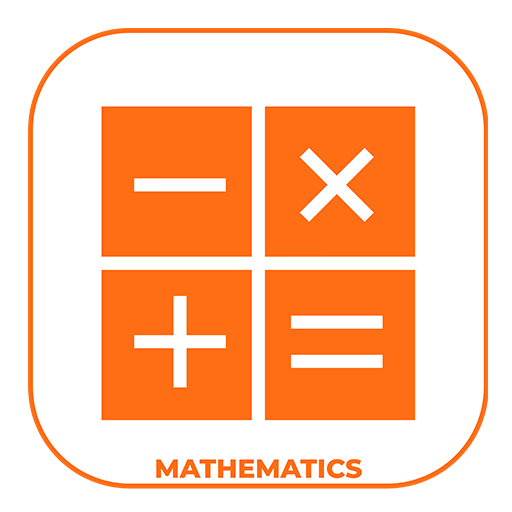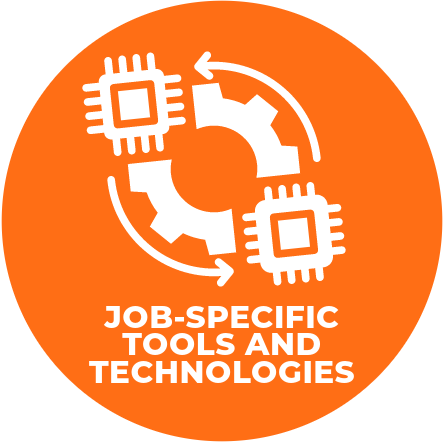Mathematics skills are essential for pursuing careers in science, technology, engineering, and mathematics (STEM) fields, but are also valuable in fields such as finance, business, and even arts and humanities. Cultivating mathematics skills strengthens problem-solving abilities, enhances logical reasoning, and provides a solid foundation for lifelong learning and intellectual growth.
“Mathematics is not about numbers, equations, computations, or algorithms: it is about understanding.”
William Paul Thurston
- Mathematics Skills
- Budgeting: Managing finances, creating budgets, and tracking expenses.
- Percentages: Determining tip amounts and applying discounts while shopping.
- Unit Conversion: Converting between different units of measurement (e.g., miles to kilometers).
- Understanding Interest Rates: Calculating simple interest and understanding compound interest.
- Reading Nutrition Labels: Analyzing nutritional information and portion sizes.
- Ratio and Proportion: Scaling recipes, understanding measurements, and converting units.
- Time Management: Planning schedules, estimating time, and managing deadlines.
- Basic Statistics: Understanding concepts like mean, median, and mode.
- Basic Arithmetic: Performing addition, subtraction, multiplication, and division.
- Understanding Loans: Grasping basic concepts of loan rates and loan calculations.
- Logical Reasoning: Applying logical reasoning to mathematical problems.
- Comparison Shopping: AExpressing ideas clearly and effectively to facilitate understanding.
- Understanding Paychecks: Calculating net pay, deductions, and withholdings.
- Reading Maps: Understanding scales, distances, and directions on maps.
- Measurement: Converting units and solving measurement problems.
- Solving Everyday Problems: Applying problem-solving skills to various real-life situations.
- Analyzing Data: Interpreting and drawing conclusions from simple data sets.
- Calculating Area and Volume: Measuring spaces and calculating area or volume.
- Estimation: Working effectively with others to share knowledge and insights.
- Feedback Acceptance: Receiving and incorporating feedback to improve learning outcomes.
- Summary
- Cultivating mathematical skills involves combining practical application, continuous learning, and problem-solving. Start by identifying areas of interest or necessity where math plays a role in daily life, such as budgeting, cooking, or home improvement. Engage in real-life scenarios that require mathematical thinking, like measuring ingredients or calculating discounts while shopping. Utilize online resources, educational apps, or courses to refresh foundational concepts and explore new mathematical areas. Practice solving problems regularly to reinforce understanding and develop problem-solving strategies. Embrace challenges and view problem-solving as an enjoyable and rewarding part of daily life, creating a positive mindset towards mathematics.
Gen Z and Millennials with Mathematic Skills
“Pure mathematics is, in its way, the poetry of logical ideas.”
Albert Einstein

Harshita Arora
Harshita Arora, Co-founder AtoB, demonstrates strong mathematic skills by developing software tailored for trucking firms. The software addresses complex mathematical aspects of fuel purchasing, payroll, taxes, and accounting for over 24,000 American trucking companies. The need for precise data on prices and gallons purchased requires a deep understanding of mathematical calculations and algorithms to ensure accuracy in financial transactions. Creating a platform that serves as the “Stripe or Square for transportation” indicates proficiency in financial technology, which heavily relies on mathematical modeling and analysis. The success in raising substantial funding further attests to their mathematical acumen in developing solutions for intricate logistical and financial challenges within the trucking industry.
Image: LinkedIn Profile Video: Forbes

Levi Conlow and Robert Deziel
Levi Conlow and Robert Deziel, cofounders of Lectric eBikes, demonstrate a blend of math skills contributing to their success in the electric bike industry. Levi’s studies in business entrepreneurship equipped him with the quantitative skills necessary for budgeting, financial planning, and market analysis. His grasp of “big picture” themes suggests strategic thinking and analytical skills. On the other hand, Robby’s background in mechanical engineering reflects strong problem-solving and technical abilities. Engineers often employ mathematical principles for design, optimization, and precision. Together, their complementary skills form a well-rounded approach, from the financial calculations needed for budgeting and pricing to the intricate details of designing and building electric bikes. The success of Lectric eBikes, especially in designing the popular Lectric XP series, underscores how combining strategic and technical math skills can lead to innovative solutions and market success.
Photo: Phoenix Magazine Video: CheapRVliving Interview

Name
Name. description

